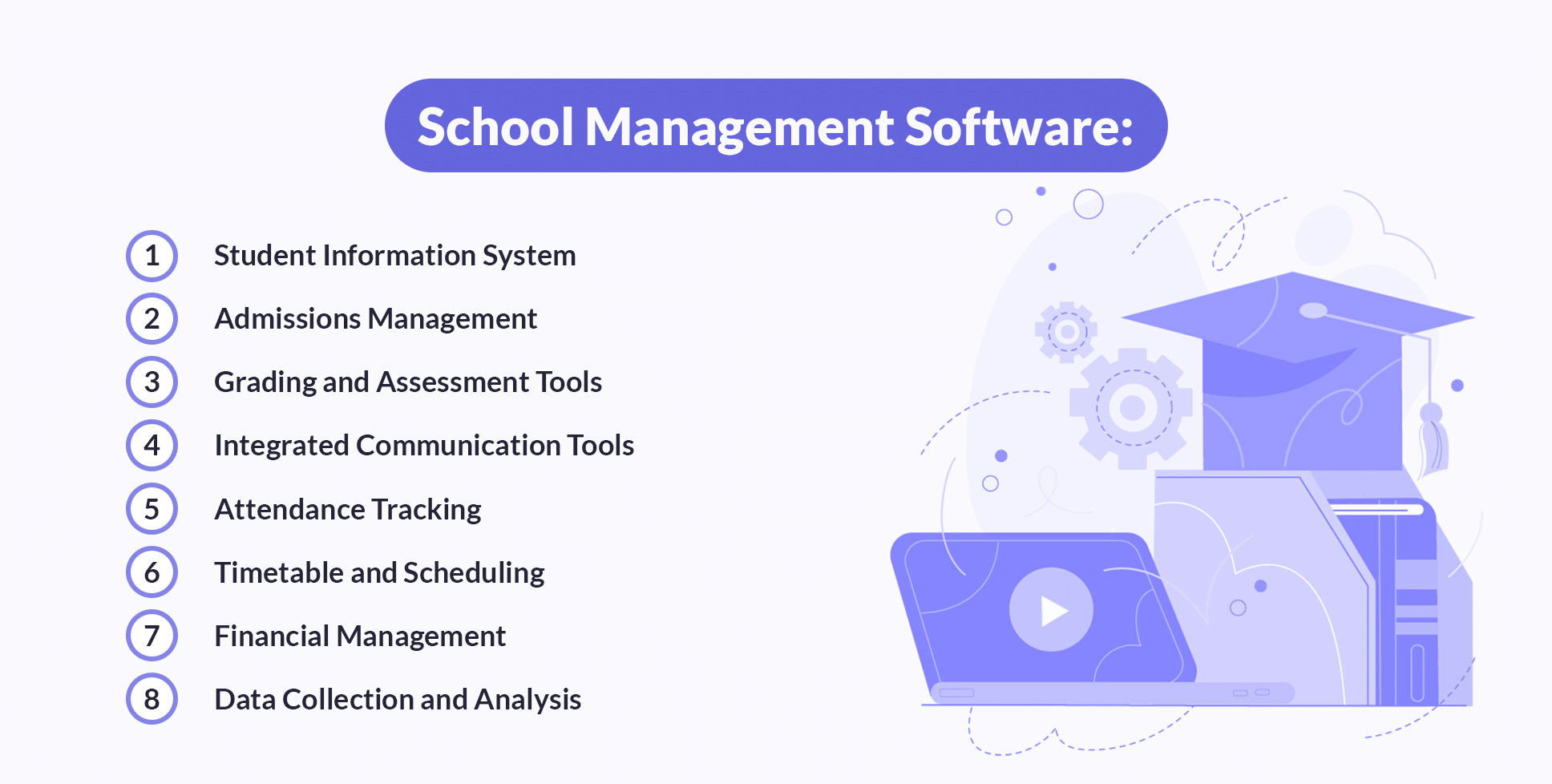Navigating the complexities of running an educational institution requires a holistic approach, especially when it comes to handling administrative tasks like financial oversight, enrollment management, academic scheduling, and ensuring secure and immediate access to grades and student information for parents.
By 2027, the demand for such systems is projected to surge, reaching a market value of $11.95 billion, driven by the adoption of cloud-based school management solutions. If you are thinking of developing your own school management system, consider partnering with a reliable school management software developer. This will help you minimize risks and easily achieve the desired results with minimal effort on your part.
With Geniusee, you can significantly simplify and enhance the efficiency of administrative operations, data handling, and storage, ensuring these processes are streamlined, easily accessible, and safeguarded against digital threats. Below are eight critical functionalities your educational software should incorporate to meet these needs effectively.
Centralized Student Database
At the heart of school management software is the centralized student database, a crucial component for storing comprehensive student details including personal and medical information, academic records, and disciplinary notes. This feature allows for real-time, role-specific access to student data, ensuring information is accurate, current, and protected.
Streamlined Admissions Process
Handling admissions can be daunting due to its complexity. A school management system should simplify this process through features that support online student registration, application tracking, and enrollment, facilitating the seamless integration of new students into the school’s ecosystem.
Grading and Assessment Management
As digital learning becomes more prevalent, efficient grading and assessment tools are vital. These features enable educators and parents to monitor student performance closely, providing access to grades and feedback, thereby fostering a more informed and involved educational community.
Comprehensive Communication Channels
Effective communication tools within a school management system ensure that information flows smoothly among teachers, administrators, students, and parents. These tools, including messaging services and online portals, play a significant role in enhancing student engagement and parental involvement in the educational process.
Attendance Monitoring
Accurate attendance tracking is essential for both educational accountability and parental peace of mind. A school management system should offer straightforward mechanisms for logging attendance and generating reports, aiding in the identification of attendance patterns and potential academic concerns.
Efficient Scheduling System
Scheduling conflicts can significantly hinder academic progress. A robust scheduling feature within the school management software enables the efficient organization of classes, events, and resources, ensuring students can fully engage with their educational responsibilities.
Financial Administration
Financial management capabilities allow schools to handle billing, fees, and other financial tasks with ease. This includes generating invoices, managing receipts, and facilitating online payments, streamlining the financial operations of the institution.
Data Analytics and Reporting
The ability to collect and analyze data is a powerful feature of school management software, offering insights into trends, student performance, and operational efficiency. This information can guide strategic decisions, enhancing the institution’s overall effectiveness and competitive edge.
Beyond these core functionalities, you may seek additional features such as library management, inventory control, and transportation logistics to further enhance operational efficiency. These essential features can help you automate processes, boost security, reduce administrative burdens, and, ultimately, elevate the educational experience.


